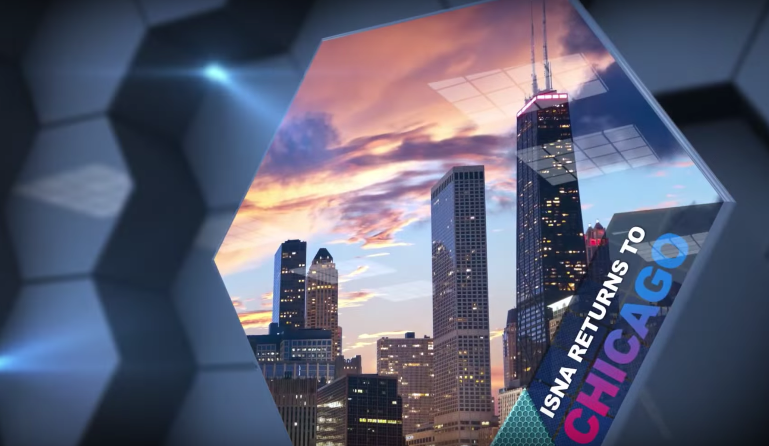World Renowned Neurosurgeon
By Laura Fawaz, Contributing Reporter
 |
World-renowned neurosurgeon Dr. Ghaus Malik. (Photo: Laura Fawaz) |
West Bloomfield, MI–Dr. Ghaus Muhammad Malik of West Bloomfield, MI is a world-renowned neurosurgeon at The Henry Ford Hospital of West Bloomfield.
Officially speaking, he is the Director of the Neurovascular Program, the Executive Vice Chair, and head of the Department of Neurosurgery. These titles are not just given out; they are awarded to the best and brightest in their respective fields. After what Dr. Malik has done for the world of neurosurgery, his patients would agree with his accommodations.
In the past, patients with A.V.M (arteriovenous malformation) disease did not even know that they had this illness, until it struck. This is why this disease is so serious, because even though it is one that people are born with, it goes untreated for so many years. Dr. Malik explained A.V.M similar to a blister, where it forms like a cluster of blisters in the brain. Those blisters are the blood vessels clustering dangerously close until they rupture. The upside is that with recent technologies such as MRI’s, doctors are now able to see the A.V.M cluster in the brain. The only problem is that since there are no signs to watch out for with this disease, there is not reason to get the MRI.
To add to the complications, no two A.V.M.’s are alike. Before Dr. Malik came to the scene, it used to be that A.V.M was just something you were born with. The patient would have no idea until a blood vessel ruptured, and there was nothing that could be done about it. “We spent lots of time treating brain tumors, giving the patients just a few short months. But when these young people came in with A.V.M, we told them that there was nothing that could be done. This didn’t make sense,†said Dr. Mailk.
And now there is a method of actually being able to treat it. This new treatment method consists of beams of radiation that delicately blocks the passageway for these clusters to the rest of the brain, as well as untangels the blood vessels that they can. For most patients, depending on the severity of their incident, they will still carry some of the effects of the accident after surgery. For example, there was a 19-year-old man who fell over after a basketball game; and that was when he and his family found out that he had A.V.M. They were given the option of treatment, and after some time, he is back to his old self, with a slight limp on his right side, and he had to switch to being left handed.
Patients come from all over the world to The Henry Ford West Bloomfield to have their procedure done here. Recently, a 21-year-old woman from Islamabad came, and just before that, another young woman from Saudi Arabia came for the procedure as well.
What peaked this doctor’s interest in this specialty began early in his career when A.V.M.’s were considered untreatable with numerous bleeding episodes for the patient until death. So he started officially his career in neurosurgery in 1975, and has had success ever since.
With his most recent award as Chair of the Department, the hospital has been endowed from the John R. Davis foundation with $1 million for the Henry Ford West Bloomfield to go towards research in the neurosurgery department. Also, Dr. Malik has been granted a lectureship in his name. This means that he that Dr. Malik is invited to attend conferences on the topic all around the world so that he along with his international colleagues can exchange ideas and experiences. He enjoys giving lectures to help provide educational resources, and to create this chain of collectiveness.
Yes many lives are prolonged and saved throughout all this research, but ultimately, what it leads to is even further advancements in the field. It emphasizes on education, training, experiences, and advancing neurosurgery.
Dr. Malik has been elected to many professional associations and societies, including the American Association of Neurological Surgeons, the Congress of Neurological Surgeons, the American Medical Association, and the American College of Surgeons. He also belongs to the Association of Pakistani Physicians, the Medical Research Society of Pakistan, and the Pakistan Society of Neurosurgeons.
He is also one of the founders, and serves currently as chairman of the board of trustees, of the Islamic Association of Greater Detroit (IAGD), one of the earliest mosques of the Detroit area.
He has served many committees throughout the Henry Ford Health System including the Board of Governors and Board of Trustees. Dr. Malik has published over 80 articles and chapters in the neurosurgical literature. He has given numerous presentations at both national and international meetings and has been an invited lecturer in many countries including Argentina, India, Italy, Japan, Malaysia, Mexico, Pakistan, Singapore, South Korea and Spain.
“Each has it’s own importance, exchange of information and education,†said Dr. Malik.
15-36












2013
1,862 views
views
0
comments